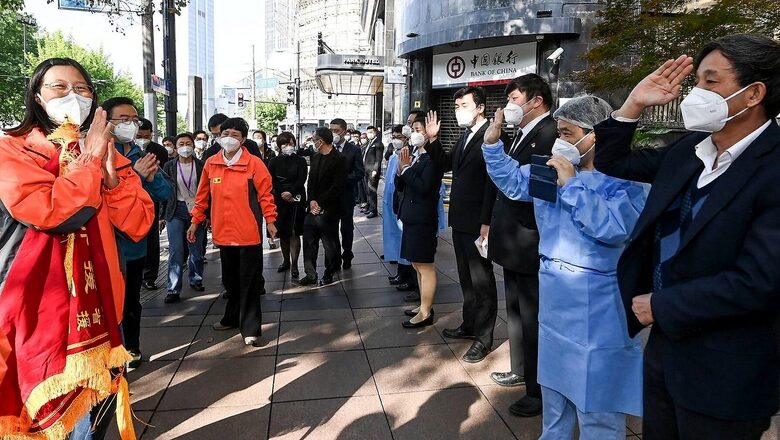
views
Months ago, experts had predicted the damages China’s ‘Zero Covid’ policy could cause. Now, it looks like they were correct.
The country’s industrial output has decreased 2.9% from a year ago in April, while retail sales fell 11.1%, less than the forecast 6.6% loss.
Additionally, according to reports, the unemployment rate increased to 6.1%, with the youth unemployment rate reaching a new high. Consequently, investors sold everything from Chinese stocks to US index futures and gasoline.
Meanwhile, the Semiconductor Manufacturing International Corporation (SMIC) said China’s rigorous lockdowns, combined with the continuing turmoil in Ukraine, have significantly reduced demand for smartphones and computers.
This will exacerbate the worldwide chip problem, as the company’s Shanghai manufacturing will be compelled to work at reduced capacity. With a 5.3% market share last year, SMIC is the largest contract chipmaker in China and the fifth-largest globally.
DROP IN SALES
SMIC CEO Zhao Haijun has reportedly confirmed that smartphone, PC and home appliance demand has dropped drastically.
Zhao said the conflict between Russia and Ukraine is partly to blame for the sales drop, claiming several companies have ceased selling their products in Russia, while Ukrainians have cut back on non-essential expenditure.
The severe lockdown policies in the country, on the other hand, are having the greatest impact on SMIC’s clients, with the CEO stating that Chinese smartphone vendors will limit shipments by 200 million units this year, causing them to cancel chip purchases.
This means that smartphone chips will account for only 29% of the foundry’s overall manufacturing capacity, down from 50% last year.
SMIC’s output is also being affected by the lockdowns. As the business has many factories in Shanghai that it has only been able to keep open thanks to a closed-loop system, over 60% of workers have been sleeping and living inside factories.
Even while the company is taking steps to mitigate the effects of the lockdowns and higher raw material prices, it still forecasts a 5% drop in production in the second quarter.
Zero Covid Policy
The government has stepped up its ‘Zero Covid’ strategy. Major cities such as Shanghai were closed down for several weeks, and restrictions were imposed in many other places, reducing spending, closing factories and disrupting supply chains.
But businesses have criticised the policy, which has fueled public frustration and pushed Beijing’s ambitious full-year growth target of around 5.5% further out of reach.
The main financial newspapers in China published a six-month-old speech by President Xi Jinping on the need to preserve jobs and boost growth this week, indicating a greater urgency to boost the economy.
According to Bloomberg Economics, the gross domestic product fell 0.68% in April compared to the previous year, the first contraction since February 2020. According to UBS Group AG, growth could fall below 2% in the second quarter, while S&P Global Ratings predicted it could fall as low as 0.5%.
With Shanghai taking the first steps toward reopening by allowing some shops to gradually resume operations beginning this week, there is a hope the situation will get better.
However, many people in Shanghai still remain confined to their homes due to strict lockdown measures. The city’s vice-mayor stated on May 15 that normal life and production will not resume until mid-to-late June.
Read all the Latest Business News here




















Comments
0 comment